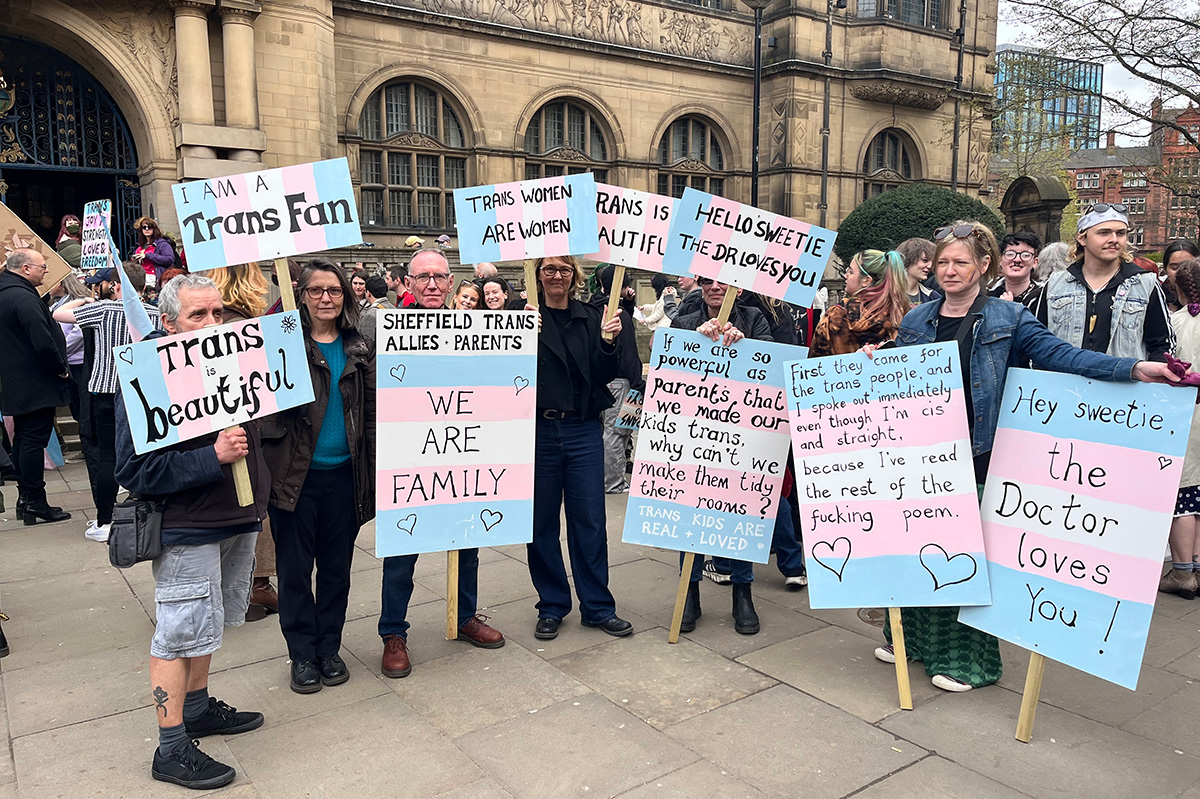Commentary
Recurring characters in a polyamorous world
Your relationship is about as customizable as your latte

As I worked on this piece, I received a rare WhatsApp notification on my phone. What did it say? Stay tuned, but first:
Ever imagine your life as a sitcom? Like most writers with Main Character Syndrome, I do all the time. I reflect on my setting, my episodic plots, my seasonal arcs, and the supporting cast making life more interesting. However minor the role these recurring characters play, one thing is certain: they shape our universe, for better or worse.
Often, my daily episodes start in a setting familiar to many: a coffee shop greeting me with the aroma of freshly ground beans and the chatter of patrons ready to seize their day. Well, that’s the romanticized version, anyway. Since I work late at a bar, it’s usually early afternoon by the time I stroll in. By now the morning rush is long gone while I’m in disheveled clothes that may as well be pajamas, but regardless, my day’s first recurring character remains: my barista, Spencer.
With Technicolor dreads, anime memorabilia, and punny Steven Rhodes T-shirts, it’s evident Spencer marches to the beat of their own drum. It makes sense, then, that Spencer became a welcomed friend when I moved into the neighborhood during the pandemic. Our encounters often made the 10-minute walk worth the overpriced cold brew.
Yet as I got to know Spencer, I found myself confused by their relationship status. They would recount their weekend speaking of their boyfriend, their daughter, their girlfriend, their partner, or their other partner. At first, I figured my memory was shit (partially true), until I finally learned that Spencer is in a polyamorous relationship.
Over the years, the term “poly” has been casually tossed into relationship conversations. Typically, the natural follow-up is, “what exactly is poly?” Turns out polyamory is a catchall term, so poly relationships can take various configurations. Open relationships, throuples, and even polygamy can be considered polyamorous, but the common theme is this: polyamory rejects the notion of a singular love in life and accepts that people can love multiple partners at the same time. Now polyamory is so widespread your barista might even partake, proving these days your relationship is about as customizable as your latte.
So, how exactly do these relationships start? It’s hard enough for me to get serious with one person, let alone two or more. Through my conversations I learned it’s a gradual count as simple as one, two, three. This was the case for Spencer, since their boyfriend and girlfriend were a couple before they entered the picture. “We had some mutual friends who introduced us,” Spencer told me. “We talked on and off for about a year and a half before they invited me over for dinner and vibes, which led to us hanging out more and more, until my boyfriend asked me to join the relationship.”
Earlier this year, I read an article in the Atlantic about the rise of polyamory, which described the lifestyle as a luxury of the elite. “From their gilded pedestals,” wrote the author of the rich, “they declare polyamory superior to monogamy.” From what I see, however, this is simply untrue. Perhaps our awareness of polyamory coincided with online images shared by the elite, but that doesn’t make it elite-only. Case in point: Spencer has been in their polyamorous relationship for nearly three years.
Moreover, Spencer is not an exception. Beyond baristas, coworkers appear in our sitcoms more often than friends or family sometimes. In a previous piece I wrote about Kelsey, our bar’s stylish door girl, who I learned was in a polyamorous relationship nearly a decade ago, exploring the trend before the trend was a trend.
Like Spencer, Kelsey’s throupling didn’t happen overnight. “Back in college, I was exploring my bisexuality but hadn’t come out yet,” said Kelsey. “I started casually dating a guy who casually dropped the bombshell that he was in an open relationship. I saw a picture of his partner and knew I had to meet her. When we finally met, sparks flew, and the three of us started hanging out. Before long, we were inseparable.”
And Just Like That, Kelsey’s sitcom went from “Felicity” to “Three’s Company.” What I didn’t know until recently was the extra curveball thrown in. “Fast forward,” she started, “they got pregnant, and we were all raising the baby together.”
I was surprised to find not one but two polyamorous relationships raising a child. This might sound messy, but it works better than I thought. “We run into a lot of the challenges most monogamous parents run into,” Spencer explained. “The main benefit I’d say is that [our daughter] has three parents who love and support her, will defend her, and will always take care of her. She has three people she can talk to or cry to, and we have all different opinions and experiences, so we’re able to give her unique advice or teachings.”
This highlights another important aspect of polyamorous relationships: they are often more than fleeting affairs. To reach this label requires serious thought, deep conversation, and mutual agreement. The rest of us can snicker or balk at these triads all we want, but they easily become as serious as monogamous couplings, if not more so.
In fact, polyamory can even resolve the woes of monogamy. “I used to feel the pressure of having to be everything to one partner,” said Kelsey, “and vice versa, but with two partners, that weight lifted. If one partner wanted to do an activity I didn’t want to, they could enjoy those activities together while I got to opt-out guilt-free.”
Interestingly, while poly is considered solidly queer, homosexual relations are not a requirement. For both Kelsey and Spencer, there was at least one in their trio who remained heterosexual. This is because throuples often find a balance enabling all involved to be their optimal sexual selves. “I didn’t know at the time,” Kelsey recounted, “but I’m definitely a vers and got to express both my submissive and dominant sides.” This makes sense, for sexual dynamics are complex. It can be a tall order to expect one person to satisfy everything we want.
That said, polyamory doesn’t come without its own complications, one being the perceptions of others. “My mom didn’t really understand our dynamic at first,” said Spencer, “but once I explained our dynamic, she’s been super supportive. I have run into judgment from strangers who have ‘traditional’ family values.”
This echoed Kelsey’s experience. “When we moved in together, my friends were initially shocked but ultimately accepting. For work events or family gatherings, it was always stressful figuring out if it was OK for all of us to go or only two.”
And as in all relationships, emotions are entangled, which ultimately ended Kelsey’s experience. “After about two years, I noticed the romance between the two of them started to fizzle. Their date nights became as rare as a unicorn sighting, eventually disappearing altogether. I felt like a referee in a never-ending match of jealousy and tension.” Naturally, more people mean more feelings to manage, so the work that relationships require never truly goes away.
Relationship drama — now that I can relate to, bringing me back to WhatsApp. The notification turned out to be a message from a special friend in South Africa. He and I met nearly a decade ago, when I studied abroad in the UK. Our chemistry was instant, and although we live separate lives in separate places, we’ve managed time for friendly banter, romantic getaways and, on occasion, a quasi-lovers quarrel, which was the case just over a year ago.
We have barely spoken since our spat, yet here he was reaching out with an apology. I promptly apologized back. We both recognized that, at the end of the day, we still care about one another.
So, as I wrote this piece like some anthropologist analyzing a vastly different polyamorous culture, it struck me how the notion of “many loves” may not be as distant as I thought. I, like many queers, have experienced romantic connections that never truly went away. These few individuals check in on me, consistently root for me, and refuse to turn their back on me, even if we go a while without speaking. They know me well, often better than family, and they’re almost always worth an apology.
I’d venture to say most of us have this kind of recurring character in our sitcoms. Perhaps someone comes to mind as you read this. Perhaps they’ve stayed in your orbit because the best is yet to come or, like Janice to Chandler or that creepy scientist to Phoebe, to help clarify what you truly want.
Perhaps, then, we’re all a little polyamorous, and the details of how and when we balance the loves of our lives are trivial at best. A polyamorous society of queers and queers-adjacent? Now that’s a twist I can get behind.
Jake Stewart is a D.C.-based writer and barback.
Commentary
A conversation about queers and class
As a barback, I see our community’s elitism up close

In the bar, on the way to its now-Instafamous bathrooms, there’s a sign that reads, “queer & trans liberation means economic justice for all.”
I remember seeing that sign the first week the bar opened, and ever since I often find myself reflecting on that message. I stand fully in agreement. That’s why laws protecting queers in the workplace are essential, for far too often we are targeted otherwise. It’s also why I love working at the bar, since it provides opportunities for queers from all over the spectrum to earn a living. At a time when I gave myself space to pursue art, it was the bar that enabled me to do so.
It’s one thing to support the LGBTQ community in spirit, but that spirit means jack in a capitalist society if viable economic opportunities don’t exist. Speaking of jack, there’s a fellow barback named Jack who I fangirl over often. Jack is a decade younger than me, but damn I wish I had his sex appeal at his age (or any age, for that matter). He also has a mustache that easily puts mine to shame.
Jack not only agrees but took things one step further. “Economic inequality IS a queer issue,” he told me, “especially as we move into the most uncertain period of American politics I have ever lived through, it is apparent our identity is now a fireable offense.”
Uncertain is right. We’re fresh off the heels of a trade bonanza, one caused for literally no reason by our current commander in chief. Yet there emerged a strange division when discussing the trade war’s “unintended” consequences. For working class comrades like Jack and myself, we’re stressed about increasing prices in an already tough economy. But the wealthier echelons of our country had something else on their mind: the spiraling stock market. This alone highlights the story of our economic divide, where the same event produces two separate concerns for two distinct classes.
This is not to say the stock market is not important, but sometimes the media forget many Americans don’t own stock at all, including a vast majority of people between 18 and 29. In fact, according to Axios, the wealthiest 10 percent of Americans own 93 percent of the entire stock market, with the richest 1 percent holding $25 trillion — that’s right, trillion with a “t” — in market value. So, when the president reversed course on trade, it was less about high prices hurting everyday Americans and more about the dent created in the wealth of the wealthiest. And I’ll admit: that bothers me a lot.
If there is any takeaway from Trump’s trade war, it should be this: Economic inequality is the highest it has been in decades and, if left unchecked, will destroy the fabric of our country. We are steadily moving toward oligarchy status—if we’re not there already, that is—and it seems to grow worse with each passing year and administration. But in a city of D.C. gays who often skew corporate, I wonder: Are we all on the same page here?
After becoming a barback, I have my doubts. From questions about what else I do, to comments encouraging me to work hard so that I can be a bartender one day, I quickly learned the gay world is not too fond of barbacking. Barebacking, sure, but not barbacking. And hey, I get it—we’re not the alcohol hookup at the bar. Still, we are part of the service industry, and while some people are incredibly kind, you’d be surprised at how many turn up their noses at us, too.
Recently, I’ve come to realize my class defines me as much as my orientation does, if not more. Naturally, when you come from a rough neck of the woods like I do, it’s easy to feel out of place in a flashy city like D.C., which Jack noticed, too. “Anyone from a working class background could testify to that,” he said. “I don’t really know anyone from true upper class backgrounds, but I’d imagine their experience is one that leans into assimilation.”
Assimilation is a key word here, for admittedly gays love to play with the elite. Often, we don’t have children, meaning more money for the finer things in life, but that also means we may not think about future generations much, either. I’ve written before that our insecurity growing up has us ready to show the world just how powerful gays can be—power that comes in trips to Coachella and Puerto Vallarta, or basking in the lavish houses and toys we own. There’s already a joke that gays run the government, and corporate gays kick ass at their jobs as well. So, given the choice between fighting inequality and keeping a high-paying job, I must admit I have a hard time seeing where D.C. gays stand.
Admittedly, it worked out in our favor before, given that many corporations catered to our economic prowess over the years. But look at what’s happening now: Many corporations have kicked us to the curb. Protections are being stripped from queers, particularly for our trans brothers and sisters. Law firms are bowing down to Trump, offering hundreds of millions in legal fees just for their bottom line. All of this will hurt both queers and the working class in the long run, so again I ask: Corporate gays, where do you stand? Because if you remain complicit, that’s bad news for us all.
I don’t want to sound accusatory, and I hate being a doomsday type, so allow me to end this on a better note. Strength is not about celebrating when times are good. Arguably, true strength emerges when times get tough. These are tough times, my friends, but that also makes now the perfect opportunity to show the world just how strong we are.
At a time when the world is pressuring us to turn our backs on each other, we must defy them to show up when it counts. Corporate gays—now more than ever, at a time when the economy is turning its back on queers, we need you. We need you to stand up for the queer community. We need you to make sure no one gets left behind. We need you to show up for us, so that we can show up for you, too.
Ten years ago, the economy didn’t turn queer out of nowhere. The economy turned queer because we made it turn queer.
And if we did it once, surely we can do it again.
Jake Stewart is a D.C.-based writer and barback.
Commentary
Fight against TERFs goes global
UK Supreme Court on April 17 ruled legal definition of ‘woman’ limited to ‘biological sex’

After last week’s U.K. Supreme Court ruling that reduced the legal definition of “woman” to “biological sex,” footage of a group of women celebrating the decision with champagne spread virally across the media. These women are known as trans-exclusionary radical feminists, or TERFs.
In response, thousands of transgender people and their allies — including parents, siblings, and pro-trans celebrities — flooded the streets of London, Sheffield, Manchester, Cardiff, and other cities across the U.K. on April 19, to protest the erosion of trans rights. The fight between TERFs and trans* people have become more visible to those outside of the British LGBTQ+ community.
But this isn’t just about the U.K. The problem has gone global. For me, as an openly trans person who has lived in four different countries, it feels deeply personal.
For years, British TERFs have been spreading misinformation about gender around the globe, collaborating with far-right politicians and inspiring anti-trans violence.
At a pro-trans protest I attended in Sheffield, one of the speakers, Sofia Alatorre, a trans woman from Mexico now living in the U.K., dedicated her speech to the ways British TERFs, with their powerful movement supported by celebrities, such as “Harry Potter” author JK Rowling, are influencing people in South America.
“When I go to Mexico now, I don’t just hear people talking about transsexuals as degenerates anymore. Instead I hear about what bathroom we should use, or whether we belong in sports,” Sofia told the Washington Blade. “These are not lines that come from Mexico. They are finely crafted narratives designed to drive a wedge by weaponizing ‘common sense’ gut reactions to complicated subjects. Because without these, they’d have to face the uncomplicated reality: We are just people trying to live our lives happily. In the U.K., the entire media infrastructure is sympathetic with ‘gender critical’ TERF ideology to the point that sympathy blurs into outright support. With these lines finding footing in the Global South, it seems clear that the U.K. has become an exporter of transphobia.”
Unfortunately, TERFs even showed up at a trans event, attempting to argue with the speakers.
One of the trans* organizers of the Sheffield demonstration, who preferred to remain anonymous, expressed their love for the trans* community and trans* people. They emphasized that they are not expressing hatred toward TERFs — they simply want them to reconsider their position.
“If you’re a TERF and reading this, we don’t hate you,” they said. “We don’t hate you. There is nothing I hold in my heart but deep pity for you. You do not know the community of love that we have as transsexuals, and you only know your community of hatred. If you are tired of feeling nothing but hate, come and talk to us, we’re nice, I promise. This protest is a rallying cry that we can’t lose, that we are all here for each other, and that we can do whatever the f*ck we want when we work together. We may be out here today in rage, but what keeps us alive is love.”
But it doesn’t seem like TERFs are ready to show love toward trans people — or to see trans women as their sisters. At our local protest in Sheffield, they were so agitated, jumping toward speakers and trying to engage with them, that the police had to intervene and remove them to prevent a fight. It reminded me of TERFs’ behavior I encountered in St. Petersburg, Russia, and in Russian-language online spaces.
Unfortunately, it’s not just South America that has been influenced by UK TERFs. The country I currently live in is known within European and U.S. queer communities as “TERF Island.”
Some trans Americans even avoid traveling to the U.K., afraid of the influence that Rowling holds over millions due to her wealth and cultural impact.
In Russia, Ukraine, and other Eastern European countries, so-called “radical feminism” is the most prominent feminist movement. Radical feminism, which emerged in the 1960s, is based on the belief that patriarchy is the root of all other forms of oppression.
In modern Eastern Europe, this has led to a situation where many feminists fail to acknowledge racism, ableism, and transphobia — excluding everyone except cisgender people, Slavic, atheist, and able-bodied people from their movement. Historically, radical feminists have not focused much on the trans* community, but with the rise of trans* activism in the 2000s, many became fixated on targeting trans people.
Many of my Russian-speaking trans friends have been badly bullied by local TERFs. Some even experienced suicidal thoughts and severe anxiety due to online harassment from them. And these TERFs weren’t developing their ideology locally — they were importing it. The anti-man rhetoric was inherited from American prominent radical feminists like Andrea Dworkin and Ti-Grace Atkinson, while the transphobic elements were “exported” to Eastern Europe, primarily from the U.K. and specifically Scotland.
Even before Rowling, there was Magdalen Berns, a Scottish TERF YouTuber who was extremely popular among Russian girls and women. It was Berns who helped bring Rowling into anti-trans activism.
I spoke with Sophie Molly, a Scottish trans activist and politician who ran as an Independent MP candidate in the 2024 U.K. general election for the Aberdeen South constituency.
TERFs ruthlessly harassed her during her campaign.
“Transphobia is institutionalized in the UK. It is systemic and it’s getting worse with each passing day” she told me. “Local TERF have a slew of legal professionals on their team too. Like Sarah Phillimore and Joanne Cherry. TERFs have been continually lobbying the government to oppress trans and gender non-conforming people. Dragging their rights and freedoms through the courts. All under the pretense of protecting the rights of women. In reality these conservative groups are backed and funded by billionaires. Billionaires that want to remove trans people from public life, due a personal prejudice they hold. The majority of TERFs are wealthy and privileged white women. Most of them are not LGBTQIA+. They have obscene amounts of money to spend on persecuting a tiny minority. Trans women are women — no matter what the U.K. Supreme Court dictates.”
But another problem of TERFs is that they are policing women as well. Even the Supreme Court decision targeted women.
“The [Supreme Court] decision is an attack on the rights of both trans people and women,” Sophie said. “It reduces women to their anatomy, which is extremely regressive and misogynistic in my opinion”
Women for decades have fought to ensure their lives wouldn’t be defined by the sexual organs they were born with. TERFs are now doing exactly that — attempting to reduce womanhood to biology, while also dictating how women should behave, all in the name of “sisterhood.”
Modern British TERFs have received support from figures like musician, far-right influencer, and convicted murderer Varg Vikernes, as well as ultra-conservative organizations such as the Russian Orthodox Church, an institution notorious not only for justifying the war in Ukraine with homophobic rhetoric but also for its long history of opposing women’s rights. This kind of “feminism” is a global threat, not only to trans* people but also to girls and women everywhere.
Editor’s note: The author uses trans* in order to be inclusive of nonbinary and gender queer people.
Commentary
America’s detransition: The far-right’s coordinated attack on climate policy and trans rights
Progress framed as ‘mistake that must be undone’

What if the far-right’s endgame isn’t just stopping progress, but erasing it altogether? From banning trans healthcare to reversing climate policies, they aren’t just resisting change — they’re trying to force the world back into an imaginary past that never existed.
Across climate policy and trans rights, the right isn’t just opposing change — it’s actively detransitioning America, unraveling progress under the guise of “common sense” and “restoring order.” But this isn’t just about ideology. It’s about power.
From pulling out of the Paris Agreement to banning gender-affirming healthcare, the right has perfected a political strategy that frames progress as a mistake that must be undone. Whether it’s climate action or trans visibility, any step toward justice is framed as dangerous, unnatural, and in need of correction.
And if we look closer, these attacks aren’t just similar — they are deeply connected. By comparing the right’s climate rollbacks and its war on trans rights, we can see a broader strategy at work: One that fuels fear, manufactures doubt, and ultimately serves the interests of those already in control.
The fight isn’t just about policy. It’s about who gets to belong in the future.
The manufactured crisis: Who profits from reversal?
To justify rolling back both trans rights and climate protections, the right leans on manufactured crises — presenting change as a dangerous social experiment gone wrong. And the most effective way to do that? Weaponizing doubt.
Take climate change. Despite overwhelming scientific consensus, climate denialists cherry-pick uncertainties — using rare instances of changing climate models to cast doubt on the entire field.
Similarly, the right has latched onto detransition stories, amplifying a handful of cases where individuals regret transitioning to suggest that all trans people will regret their identities.
By focusing on individual regret rather than systemic realities, these movements create the illusion that climate action and trans healthcare are harmful mistakes rather than necessary progress. The message is clear: We must “correct” these wrongs by detransitioning the country back to a time before this supposed damage occurred.
But who actually benefits from this rollback?
- Fossil fuel companies profit from climate skepticism, ensuring we remain dependent on dirty energy.
- Right-wing politicians fundraise off anti-trans fearmongering while avoiding economic issues that might actually improve people’s lives.
By making people believe they are “fighting back” against elites, the right obscures the actual elites profiting from this manufactured outrage.
The spectacle: Turning trans lives and climate policy into distractions
None of this would work without media spectacle. Right-wing politicians and media outlets know that the most effective way to keep people from questioning power is to keep them emotionally invested in a performance.
Take the far right’s obsession with trans youth. They flood the airwaves with panic over puberty blockers, despite the fact that gender-affirming care is exceedingly rare.
A peer-reviewed study analyzing private insurance claims found that out of more than 5 million adolescents ages 8 to 17, only 926 received puberty blockers and 1,927 received hormone therapy between 2018 and 2022.
Similarly, climate policies are attacked as elitist schemes to control the working class — painting green energy initiatives as an attack on personal freedom, just as gender-affirming care is framed as an attack on children.
By shifting the focus onto symbolic enemies — the “radical trans activist” or the “climate elitist” — the right gives people someone to hate while avoiding the real sources of economic and environmental crisis.
And this isn’t just a cultural strategy. It’s a business model.
Capitalism is in the business of creating problems, then selling solutions.
- Oil companies push carbon capture technology while continuing to pollute — ensuring the crisis is never fully solved, only managed.
- The right promotes “detransition support” while banning trans healthcare, creating a crisis where one didn’t exist.
Both strategies ensure that nothing actually changes, while making people feel like they’re participating in a fight for freedom.
It’s a distraction, and it’s working.
Nature as a battleground: The far-right’s fear of fluidity
At its core, the war on trans people and the war on climate action stem from the same fear: The fear of change.
Queer ecology tells us that nature itself is fluid, adaptive, and in constant transition. Yet, the far-right insists on rigid, binary categories:
- Man/Woman.
- Fossil Fuels/Renewables.
- Traditional/Disruptive.
In both cases, fluidity is framed as unnatural — something that must be controlled through political intervention.
- Fossil fuels are labeled “natural” energy, while renewables are framed as “forced” and “unnatural”—a rhetorical tactic explored in a 2025 study on far-right climate discourse.
- Trans identities are labeled “unnatural choices,” requiring government bans to prevent people from making “mistakes.”
But what’s truly unnatural? The attempt to freeze society in time. The climate has always changed. Gender has always been fluid. The far-right isn’t defending nature — they’re defending control.
The far-right’s detransition obsession mirrors climate rollbacks
Capitalism is not interested in actual progress — it only cares about control.
The obsession with detransition mirrors climate rollbacks in that both are framed as necessary corrections to a mistake.
- The Paris Agreement withdrawal was presented as a return to “energy independence.”
- Trans bans are framed as returning to “biological reality.”
But the goal isn’t returning to a real past. It’s about constructing a version of the past that justifies present oppression.
- Climate denial isn’t about scientific debate — it’s about maintaining corporate power, as Time reported in 2025.
- Anti-trans laws aren’t about protecting kids — they’re about enforcing gender hierarchies, according to a 2025 New York Times editorial.
Neither of these rollbacks is accidental. They are part of a deliberate strategy of control — one that tells us that progress is always temporary and can always be reversed.
Who owns the future?
If we allow the right to detransition America, we risk a world where progress is always reversible, and power remains in the hands of those who benefit from disorder and fear.
The real question isn’t whether these issues are linked — it’s why they were ever separated to begin with. The fights for climate justice and trans rights are one and the same:
- A fight against the illusion of permanence.
- A fight against manufactured crisis and controlled reversal.
- A fight for a future that actually belongs to all of us.
So what do we do?
- We must refuse to accept their manufactured doubt — trans rights and climate action are not mistakes that need fixing.
- We must reject their false nostalgia — there is no past to return to, only a future to create.
- And most importantly, we must recognize that these struggles are connected.
If we fail to see this, we risk allowing reactionary forces to shape the future. But if we understand their playbook, we can disrupt the spectacle and refuse to let them dictate what comes next.
Because this fight isn’t about going back. It’s about moving forward — and making sure no one can take that future away.
Cody Hays is a Ph.D. student at Arizona State University’s Walter Cronkite School, researching media psychology, public understanding of science, and digital misinformation, with a focus on ideological worldviews; they are a Graduate Research Fellow in the MIDaS and Views and Values Labs, executive editor of the Journal of Public Interest Communications, and a nonprofit communications strategist with over a decade of experience in combating disinformation and mobilizing action.
-

 The Vatican14 hours ago
The Vatican14 hours agoAmerican cardinal chosen as next pope
-

 a&e features20 hours ago
a&e features20 hours agoYour guide to the many Pride celebrations in D.C. region
-

 U.S. Supreme Court2 days ago
U.S. Supreme Court2 days agoSupreme Court allows Trump admin to enforce trans military ban
-

 District of Columbia2 days ago
District of Columbia2 days agoWorldPride permits for National Mall have yet to be approved












